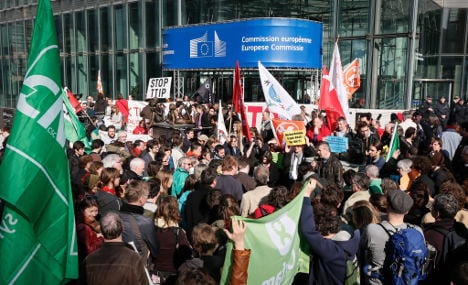Common regulatory standards are perhaps the most ambitious objective of the bilateral talks that began last July to create the world's biggest free-trade zone between the European Union and United States.
Data privacy
Americans and Germans are broadly supportive of a US-EU free-trade pact, but differ over details, especially forging similar goods and services standards, according to a survey released on Wednesday.

Common regulatory standards are perhaps the most ambitious objective of the bilateral talks that began last July to create the world's biggest free-trade zone between the European Union and United States.
Data privacy
Member comments